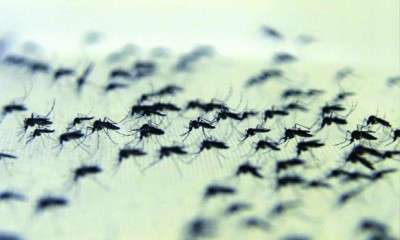Dengue program expands outlook

Scaling up to take on large urban areas is the latest challenge for the Eliminate Dengue program, which tackles the disease by seeding infected areas with mosquitoes infected by a particular bacterium.
Unlike traditional methods of controlling dengue fever, which generally involve killing the Aedes aegypti mosquito that passes the virus between people, the Eliminate Dengue team spreads mosquitoes that carry a bacterium called Wolbachia.
When Wolbachia infects a mosquito, it prevents the dengue virus from taking hold and being transmitted to humans.
Having proved in small field trials that releasing Wolbachia-infected mosquitoes into the wild leads to the spread of Wolbachia through mosquito populations, the challenge for the research team is to expand the method to large urban areas.
"At the moment we're focusing on developing methods to scale up so we can deploy over whole cities of 500,000 people," said Professor Scott O'Neill, program leader and Dean of Science at Monash University.
Researchers are working towards a full-scale deployment by the end of this year in Townsville, in tropical north Queensland. Following current small-scale trials in Yogyakarta, Indonesia, and a small island off Nha Trang in Vietnam, it is hoped these cities will also support a full-scale deployment in 2015.
The Yogyakarta and Nha Trang trials will also allow researchers to more clearly assess the impact that such a release has on the rates of dengue infection. While northern Australia suffers periodic dengue outbreaks, these are dwarfed in scale by the devastation that dengue wreaks in other parts of the world, in particular South-East Asia, India and Latin America.
"Part of our work in Indonesia and Vietnam is scaling up the whole-city deployment to get the first direct measurements of efficacy," Professor O'Neill said.
This means the Wolbachia intervention is yet to face its greatest challenge – to prove whether it does lead to a drop in dengue infections. But there is every indication that it will.
"We haven't had a direct test of efficacy yet, but models and the predictions that come from these say we should be able to completely stop dengue transmission where we can deploy the Wolbachia-carrying mosquitoes," Professor O'Neill said.

















